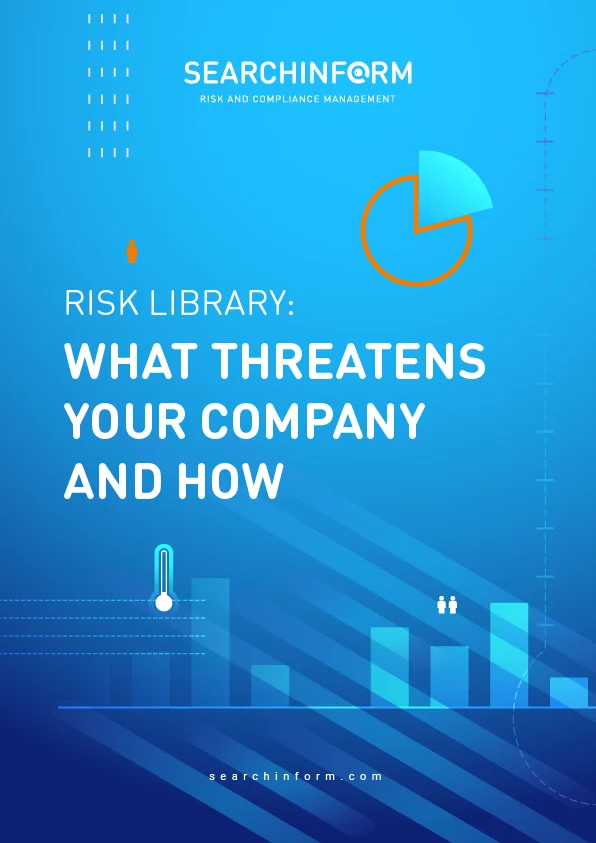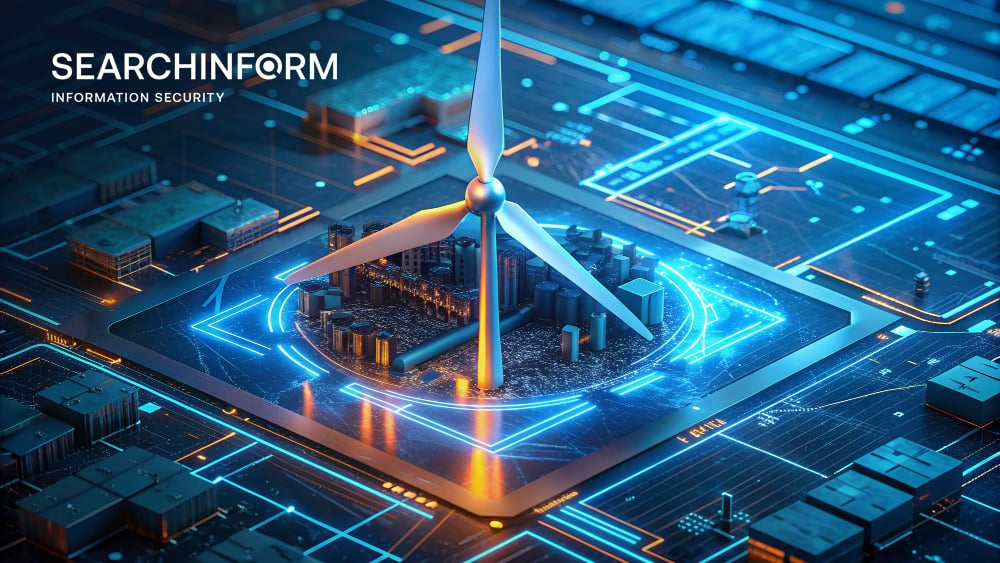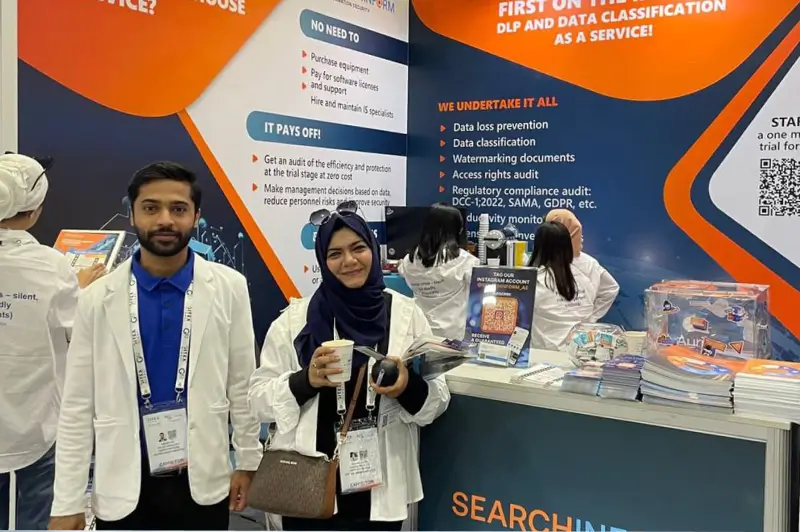Cloud Forensics Challenges: An In-depth Analysis
- Major Challenges in Cloud Forensics
- Data Acquisition: A Moving Target
- Volatility of Data: The Ephemeral Nature
- Multi-Tenancy Issues: Shared Spaces
- Data Integrity and Validation: Ensuring Accuracy
- Ensuring Data Integrity: Unwavering Accuracy
- Challenges in Data Validation: Establishing Trustworthiness
- Legal and Regulatory Challenges: Navigating the Maze
- Jurisdictional Issues: Crossing Borders
- Compliance with Laws: A Regulatory Minefield
- Organizational Challenges: Coordination and Policies
- Coordination Among Stakeholders: Bridging Gaps
- Organizational Policies: Standardization Needed
- Human Factors: Skills and Awareness
- Skills and Expertise: Keeping Pace with Technology
- Awareness and Training: Building a Knowledge Base
- Resource Constraints: Time and Budget
- Time Constraints: Acting Quickly
- Budget Limitations: Investing in Tools and Talent
- Privacy and Ethical Concerns: Balancing Access and Protection
- Privacy Concerns: Protecting Sensitive Data
- Ethical Standards: Upholding Integrity
- Technical Challenges in Cloud Forensics
- Encryption and Decryption: Unlocking the Mysteries
- Handling Encrypted Data: The Locked Treasure Chest
- Tools and Techniques: The Cryptographic Arsenal
- Log Management and Analysis: Navigating the Data Maze
- Collecting Logs: Gathering the Pieces
- Analyzing Logs for Forensic Evidence: The Detective’s Toolkit
- Virtualization Issues: Navigating Layers of Abstraction
- Challenges with Virtual Machines: A Complex Web
- Forensic Tools for Virtual Environments: The Specialist’s Toolkit
- Unlocking the Mysteries of Cloud Forensics with SearchInform
- Data Acquisition: Piercing the Veil of Multi-tenancy
- Conquering Data Volatility: Real-time Tracking and Alerts
- Navigating Jurisdictional Labyrinths: Cross-border Data and Compliance
- Beyond Physical Boundaries: Tackling the Lack of Direct Access
- Guardians of Log Integrity: Ensuring Availability and Authenticity
- Decrypting the Enigma: Handling Encrypted Data
- Attributing Actions in Shared Resources: The Power of User Activity Monitoring
- Practical Applications: Real-world Scenarios
- Incident Response: Immediate Actions and Comprehensive Logs
- Regulatory Compliance
- Insider Threat Detection: Early Warning Systems
- Charting the Future of Cloud Forensics
Cloud computing has transformed data storage and management, offering unparalleled scalability and flexibility. However, this advancement brings significant cloud forensics challenges, especially in digital forensics. Cloud forensics involves investigating and analyzing data stored across various virtual environments, presenting a complex landscape for experts to navigate. Unlike traditional forensics focused on physical devices, cloud forensics deals with data spread across multiple servers and data centers, complicating data location and preservation. Additionally, jurisdictional issues, encryption challenges, and the volatile nature of cloud data add further complexity to this emerging field.
Major Challenges in Cloud Forensics
Cloud forensics is a rapidly evolving field that addresses the complexities of investigating data in cloud environments. However, this progress is met with a series of formidable cloud forensics challenges. These challenges range from technical issues, like data acquisition and volatility, to legal and regulatory hurdles, including jurisdictional conflicts and compliance with diverse laws. Understanding these obstacles is crucial for developing effective forensic strategies.
Data Acquisition: A Moving Target
In cloud forensics, acquiring data is akin to hitting a moving target due to the numerous cloud forensics challenges involved. Unlike traditional systems where data is stored on physical devices, cloud data resides across numerous virtual environments. This dispersion makes it difficult to pinpoint and retrieve data. Furthermore, cloud data is often dynamic, frequently shifting between servers and data centers, which adds another layer of complexity. Forensic experts must utilize advanced tools and techniques to capture relevant data quickly and accurately before it moves or changes.
Volatility of Data: The Ephemeral Nature
The inherent volatility of cloud data is another significant cloud forensics challenge. In cloud environments, data is continuously being created, modified, and deleted. This transient nature makes it challenging to capture and preserve data in its original state. Forensic investigators need to act swiftly and employ sophisticated methods to ensure the integrity and authenticity of the evidence they gather. Failure to do so can result in critical data being lost or altered, compromising the investigation.
Multi-Tenancy Issues: Shared Spaces
Cloud environments often operate on a multi-tenancy model, where multiple users share the same physical resources. This model, while efficient, introduces significant cloud forensics challenges for forensic investigations. Distinguishing between data belonging to different tenants can be difficult, and there is a risk of inadvertently accessing or affecting data from other users. Forensic experts must navigate these shared spaces carefully, ensuring that they only access and analyze the relevant data without violating the privacy of other tenants.
Data Integrity and Validation: Ensuring Accuracy
Ensuring data integrity and validation is a cornerstone of cloud forensics. However, maintaining the accuracy and reliability of data in a cloud environment is fraught with challenges. These challenges must be addressed meticulously to uphold the credibility of forensic findings.
Ensuring Data Integrity: Unwavering Accuracy
Data integrity is crucial for reliable forensic investigations, but cloud forensics challenges complicate this process. In cloud forensics, ensuring that the data collected is accurate and untampered involves techniques such as hashing and digital signatures. However, the dynamic nature of cloud environments can make this difficult. Continuous monitoring and robust security measures are essential to maintain data integrity throughout the forensic investigation, addressing the complexities introduced by cloud computing.
Challenges in Data Validation: Establishing Trustworthiness
Validating data in cloud forensics involves confirming that the data is what it purports to be and that it has been collected and handled correctly. This process presents significant cloud forensics challenges due to the distributed nature of cloud data and the potential for changes during transmission. Forensic experts must use rigorous validation methods to establish the trustworthiness of their findings, ensuring that the data can be used confidently in legal proceedings or internal investigations.
Legal and Regulatory Challenges: Navigating the Maze
Legal and regulatory challenges add another layer of complexity to cloud forensics. These challenges stem from the diverse and often conflicting laws and regulations that govern data across different jurisdictions.
Jurisdictional Issues: Crossing Borders
Jurisdictional issues are a significant cloud forensics challenge in cloud forensics. Cloud service providers often operate globally, with data stored in various countries. This geographical distribution of data can lead to conflicts between the laws of different jurisdictions. Forensic investigators must have a thorough understanding of international laws and treaties to navigate these issues effectively. Securing cooperation from foreign entities and adhering to local legal requirements are crucial steps in conducting a successful investigation.
Compliance with Laws: A Regulatory Minefield
Compliance with laws is a critical aspect of cloud forensics, presenting significant cloud forensics challenges. Investigators must ensure that their methods comply with relevant legal and regulatory frameworks to avoid legal repercussions and ensure the admissibility of evidence. This can be particularly challenging in the cloud environment, where data privacy and protection laws vary widely between regions. Staying abreast of the latest legal developments and maintaining transparent and lawful investigative practices are essential for overcoming these challenges.
Organizational Challenges: Coordination and Policies
Effective cloud forensics requires seamless coordination between various entities, including cloud service providers, legal teams, and forensic investigators. However, this coordination is often hindered by cloud forensics challenges such as differing organizational policies, communication gaps, and a lack of standardized procedures.
Coordination Among Stakeholders: Bridging Gaps
Cloud forensics investigations typically involve multiple stakeholders, each with their own interests and priorities. Forensic investigators must work closely with cloud service providers, who control access to the necessary data, as well as legal teams, who ensure that the investigation complies with relevant laws and regulations. These interactions often present significant cloud forensics challenges, including misalignment between parties, which can lead to delays, incomplete data collection, and even conflicts. Establishing clear lines of communication and predefined protocols can help bridge these gaps and streamline the investigation process.
Organizational Policies: Standardization Needed
The lack of standardized policies and procedures across organizations can also impede cloud forensic investigations, presenting significant cloud forensics challenges. Different organizations may have varying policies regarding data retention, access controls, and incident response, which can complicate the forensic process. Developing industry-wide standards and best practices can help create a more consistent and efficient approach to cloud forensics, ensuring that investigators have the necessary guidelines to follow.
Human Factors: Skills and Awareness
Human factors play a crucial role in the success of cloud forensic investigations. The skills and awareness of individuals involved in the process can significantly impact the outcome of an investigation.
Skills and Expertise: Keeping Pace with Technology
Cloud forensics is a specialized field that requires a high level of expertise, and one of the significant cloud forensics challenges is ensuring that forensic investigators possess the necessary skills. As cloud technology evolves rapidly, so too must the skills of forensic investigators. Continuous training and professional development are essential to ensure that investigators stay abreast of the latest tools, techniques, and threats. However, finding and retaining skilled professionals can be challenging, as the demand for expertise in this area often outpaces supply.
Awareness and Training: Building a Knowledge Base
In addition to technical skills, a broad awareness of cloud forensics principles is essential for all stakeholders involved in the process, addressing cloud forensics challenges. This includes IT staff, legal teams, and organizational leadership. Providing regular training and education on cloud forensics can help build a knowledgeable and prepared team, capable of responding effectively to incidents and supporting forensic investigations.
Resource Constraints: Time and Budget
Resource constraints are a common challenge in cloud forensics, impacting the ability to conduct thorough and timely investigations.
Time Constraints: Acting Quickly
The dynamic nature of cloud environments means that data can change rapidly, making timely action crucial. This presents a significant cloud forensics challenge, as forensic investigations are often time-consuming, requiring meticulous data collection, analysis, and validation. Balancing the need for thoroughness with the urgency of the situation can be difficult, especially when resources are limited.
Budget Limitations: Investing in Tools and Talent
Cloud forensics can be resource-intensive, presenting notable cloud forensics challenges. It requires specialized tools and technologies as well as skilled personnel. Budget limitations can restrict access to these critical resources, hindering the ability to conduct comprehensive investigations. Organizations must prioritize investments in cloud forensics to ensure they have the necessary capabilities to respond effectively to incidents.
Privacy and Ethical Concerns: Balancing Access and Protection
Privacy and ethical concerns add another layer of complexity to cloud forensics. Investigators must balance the need to access and analyze data with the obligation to protect individuals' privacy and adhere to ethical standards.
Privacy Concerns: Protecting Sensitive Data
Cloud forensics often involves accessing sensitive and personal data, presenting significant cloud forensics challenges. Ensuring that this data is handled with the utmost care and in compliance with privacy regulations is essential. Investigators must implement strict data access controls and follow ethical guidelines to protect individuals' privacy while conducting their investigations.
Ethical Standards: Upholding Integrity
Adhering to ethical standards is critical in cloud forensics to maintain the integrity and credibility of the investigation. This includes avoiding conflicts of interest, ensuring transparency in the investigative process, and respecting the rights of all parties involved. Addressing these cloud forensics challenges by upholding high ethical standards helps build trust and confidence in the forensic findings.
The cloud forensics challenges are multifaceted, ranging from technical difficulties in data acquisition and preservation to navigating complex legal landscapes. Addressing these challenges requires continuous innovation, collaboration, and a deep understanding of both technological and legal aspects. As cloud technology evolves, so too must the strategies and tools used in cloud forensics, ensuring that investigators are well-equipped to tackle the unique obstacles they face.

Technical Challenges in Cloud Forensics
As organizations increasingly migrate to cloud environments, the field of cloud forensics must address a range of technical challenges. These challenges include encryption and decryption, log management and analysis, and issues related to virtualization. Each of these areas presents unique obstacles that require specialized knowledge and tools to navigate effectively.
Encryption and Decryption: Unlocking the Mysteries
Encryption is a fundamental security measure in cloud environments, but it poses significant challenges for forensic investigators.
Handling Encrypted Data: The Locked Treasure Chest
Encrypted data is designed to be inaccessible without the correct decryption keys, which is excellent for security but problematic for forensics. Investigators must often navigate legal channels to obtain these keys, a process that can be slow and complicated. In some cases, the keys may be held by third parties who are uncooperative or bound by strict confidentiality agreements. When keys are unavailable, forensic experts must resort to advanced cryptographic techniques to attempt decryption, which can be time-consuming and computationally intensive.
Tools and Techniques: The Cryptographic Arsenal
To tackle encrypted data, forensic investigators rely on a variety of specialized tools and techniques. These include software that can break weak encryption algorithms, tools that exploit vulnerabilities in encryption implementations, and methods that use side-channel attacks to gain access to encrypted information. Staying up-to-date with the latest cryptographic research and tools is essential for forensic experts to remain effective in this constantly evolving field.
Log Management and Analysis: Navigating the Data Maze
Logs are a vital component of forensic investigations, providing a detailed record of events and actions within a cloud environment. However, managing and analyzing these logs in the cloud presents unique challenges.
Collecting Logs: Gathering the Pieces
In cloud environments, logs are often distributed across multiple servers and services, each with its own format and retention policy. Forensic experts must develop methods to efficiently collect these logs from various sources. This process can be complicated by the fact that cloud service providers may not provide full access to their logs, citing privacy or security concerns. Advanced log management tools that can aggregate logs from different sources and standardize them into a common format are crucial for effective forensic analysis.
Analyzing Logs for Forensic Evidence: The Detective’s Toolkit
Once logs are collected, the next challenge is analyzing them to extract meaningful forensic evidence. This involves correlating events across different logs, identifying patterns that indicate malicious activity, and reconstructing timelines to understand the sequence of events. Forensic investigators use sophisticated data analytics and machine learning techniques to automate much of this process, allowing them to sift through vast amounts of log data quickly and accurately.
Virtualization Issues: Navigating Layers of Abstraction
Virtualization is at the core of cloud computing, enabling the creation of virtual machines (VMs) that run on physical hardware. However, this technology introduces unique challenges for cloud forensics.
Challenges with Virtual Machines: A Complex Web
Virtual machines add layers of abstraction that can obscure forensic evidence. Data in VMs can be volatile and ephemeral, making it difficult to capture a snapshot of the system at a particular point in time. Additionally, the use of containerization and microservices, which are often deployed dynamically, adds further complexity. Forensic investigators must have a deep understanding of virtualization technologies and be able to navigate these environments effectively to gather and preserve evidence.
Forensic Tools for Virtual Environments: The Specialist’s Toolkit
To address the challenges posed by virtualization, forensic experts use specialized tools designed for virtual environments. These tools can capture snapshots of VMs, analyze memory dumps, and track changes at the hypervisor level. They can also handle the intricacies of containerized applications, ensuring that evidence is collected in a forensically sound manner. Continuous development and refinement of these tools are necessary to keep pace with the rapidly evolving landscape of virtualization technology.
The technical challenges in cloud forensics are formidable, encompassing encryption, log management, and virtualization issues. Addressing these challenges requires a combination of advanced tools, specialized techniques, and continuous innovation. As cloud technology continues to evolve, so too must the strategies and tools used by forensic experts. By staying ahead of these technical hurdles, forensic investigators can ensure they are equipped to tackle the complexities of cloud-based investigations and uncover critical evidence in the digital age.
Unlocking the Mysteries of Cloud Forensics with SearchInform
Cloud forensics stands as a critical pillar in today's digital age, ensuring the security and integrity of data in cloud environments. However, the unique challenges presented by these environments require advanced solutions. Enter SearchInform, whose suite of tools provides a comprehensive approach to tackling these challenges head-on.
Data Acquisition: Piercing the Veil of Multi-tenancy
In the labyrinth of cloud environments, data from multiple clients often coexists on shared hardware. This multi-tenancy can make isolating relevant data akin to finding a needle in a haystack. SearchInform’s Data Leak Prevention (DLP) solution acts as a beacon, illuminating the data specific to a particular tenant. By implementing precise policies and rules, SearchInform ensures that data flows are meticulously monitored and controlled, whether within a single cloud or across hybrid environments.
Additionally, FileAuditor complements this by monitoring access to files and folders, capturing every modification, creation, or deletion. This level of vigilance ensures that every action is logged and ready for forensic analysis.
Conquering Data Volatility: Real-time Tracking and Alerts
In the ever-changing world of cloud data, capturing a stable snapshot can be challenging. SearchInform’s Risk Monitor provides a solution by continuously tracking user activities and communication channels. Real-time alerts and detailed reports ensure that any changes are promptly detected and documented.
The Security Information and Event Management (SIEM) system further strengthens this capability by collecting and analyzing security events from various sources. By offering real-time monitoring and logging, SIEM helps capture volatile data before it transforms, preserving crucial evidence for forensic investigations.
Navigating Jurisdictional Labyrinths: Cross-border Data and Compliance
Cloud data often transcends borders, creating a web of legal and regulatory complexities. SearchInform’s integration of DLP and SIEM ensures comprehensive logging and monitoring of data activities across multiple jurisdictions. This not only aids in maintaining compliance with local laws but also simplifies the process of cross-border investigations.
Moreover, the compliance reporting feature generates detailed reports and audit trails, demonstrating adherence to data protection regulations. This transparency is invaluable during forensic investigations, where jurisdictional clarity is paramount.
Beyond Physical Boundaries: Tackling the Lack of Direct Access
The lack of physical access to cloud servers is a significant hurdle in cloud forensics. SearchInform bridges this gap through API integration with Cloud Service Providers (CSPs). This seamless integration allows for the collection of necessary data and logs without the need for direct physical access.
By centralizing the monitoring of security events through SIEM, SearchInform provides a unified view of activities in cloud environments. This centralized approach ensures that forensic investigators have all the data they need at their fingertips, even in the absence of physical access.
Guardians of Log Integrity: Ensuring Availability and Authenticity
Logs are the lifeblood of forensic investigations. SearchInform’s SIEM solution ensures that logs from various sources, including cloud services, are collected, stored, and analyzed in a centralized system. This centralized logging enhances both the availability and integrity of logs.
To further ensure the authenticity of logs, SearchInform implements tamper-proof measures, preserving the chain of custody and maintaining the credibility of digital evidence. In the realm of cloud forensics, where trust in data is paramount, this integrity is invaluable.
Decrypting the Enigma: Handling Encrypted Data
Data encryption, while essential for security, can pose significant challenges for forensic investigators. SearchInform’s solutions address this by integrating with key management systems, ensuring that encryption keys are managed securely. Importantly, the encryption keys are always controlled and accessed exclusively by the company’s IT security department, never by any third party, including SearchInform. This guarantees that investigators within the information security department have access to the necessary decryption keys when required, maintaining both security and integrity.
Moreover, DLP and FileAuditor enforce strict access controls, ensuring that only authorized users can access encryption keys and sensitive data. This dual approach not only protects data but also facilitates forensic investigations by providing access to decrypted data when needed.
Attributing Actions in Shared Resources: The Power of User Activity Monitoring
In shared cloud environments, attributing specific activities to individual users can be challenging. SearchInform’s Risk Monitor shines in this area by tracking and analyzing user activities in real-time. Detailed logs and reports help attribute specific actions to individual users, making forensic investigations more precise.
By leveraging behavioral analysis, SearchInform detects anomalies and potential insider threats. This proactive monitoring helps identify and mitigate threats early, ensuring the security of shared resources and simplifying the attribution of suspicious activities.
Practical Applications: Real-world Scenarios
Incident Response: Immediate Actions and Comprehensive Logs
SearchInform’s DLP and SIEM solutions work in tandem to provide immediate alerts and comprehensive logs during a security incident. This ensures that forensic investigators can respond quickly and have access to all necessary data for thorough analysis.
Regulatory Compliance
With detailed compliance reporting, SearchInform’s solutions make it easier for organizations to demonstrate adherence to data protection regulations. This transparency is crucial during audits and investigations by regulatory bodies, providing a clear and verifiable trail of compliance.
Insider Threat Detection: Early Warning Systems
By monitoring and analyzing user activities, SearchInform’s Risk Monitor and FileAuditor detect suspicious behavior indicative of insider threats. Early detection and mitigation of these threats protect organizational data and simplify forensic investigations by providing clear evidence of malicious activities.
Charting the Future of Cloud Forensics
In the dynamic and complex world of cloud computing, forensic investigations require advanced tools and solutions. SearchInform’s comprehensive suite addresses these challenges, providing robust data acquisition, jurisdictional compliance, log integrity, encryption management, and user activity monitoring. By leveraging these tools, organizations can navigate the intricacies of cloud forensics with confidence, ensuring the security and integrity of their digital environments.
Take charge of your cloud security with SearchInform's comprehensive solutions. Equip your organization to tackle the unique challenges of cloud forensics with confidence and precision. Contact SearchInform today to safeguard your digital environment and ensure robust forensic capabilities.
Extend the range of addressed challenges with minimum effort
Company news
SearchInform uses four types of cookies as described below. You can decide which categories of cookies you wish to accept to improve your experience on our website. To learn more about the cookies we use on our site, please read our Cookie Policy.
Necessary Cookies
Always active. These cookies are essential to our website working effectively.
Cookies does not collect personal information. You can disable the cookie files
record
on the Internet Settings tab in your browser.
Functional Cookies
These cookies allow SearchInform to provide enhanced functionality and personalization, such as remembering the language you choose to interact with the website.
Performance Cookies
These cookies enable SearchInform to understand what information is the most valuable to you, so we can improve our services and website.
Third-party Cookies
These cookies are created by other resources to allow our website to embed content from other websites, for example, images, ads, and text.
Please enable Functional Cookies
You have disabled the Functional Cookies.
To complete the form and get in touch with us, you need to enable Functional Cookies.
Otherwise the form cannot be sent to us.

Subscribe to our newsletter and receive a bright and useful tutorial Explaining Information Security in 4 steps!

Subscribe to our newsletter and receive case studies in comics!







